Putin the imperialist: Why Ukraine is part of his dream of a Greater Russia
Vladimir Putin’s speeches and writings have often been dismissed as nationalist propaganda, but Russia’s invasion of Ukraine casts his thinking in a far more sinister light, writes Borzou Daragahi

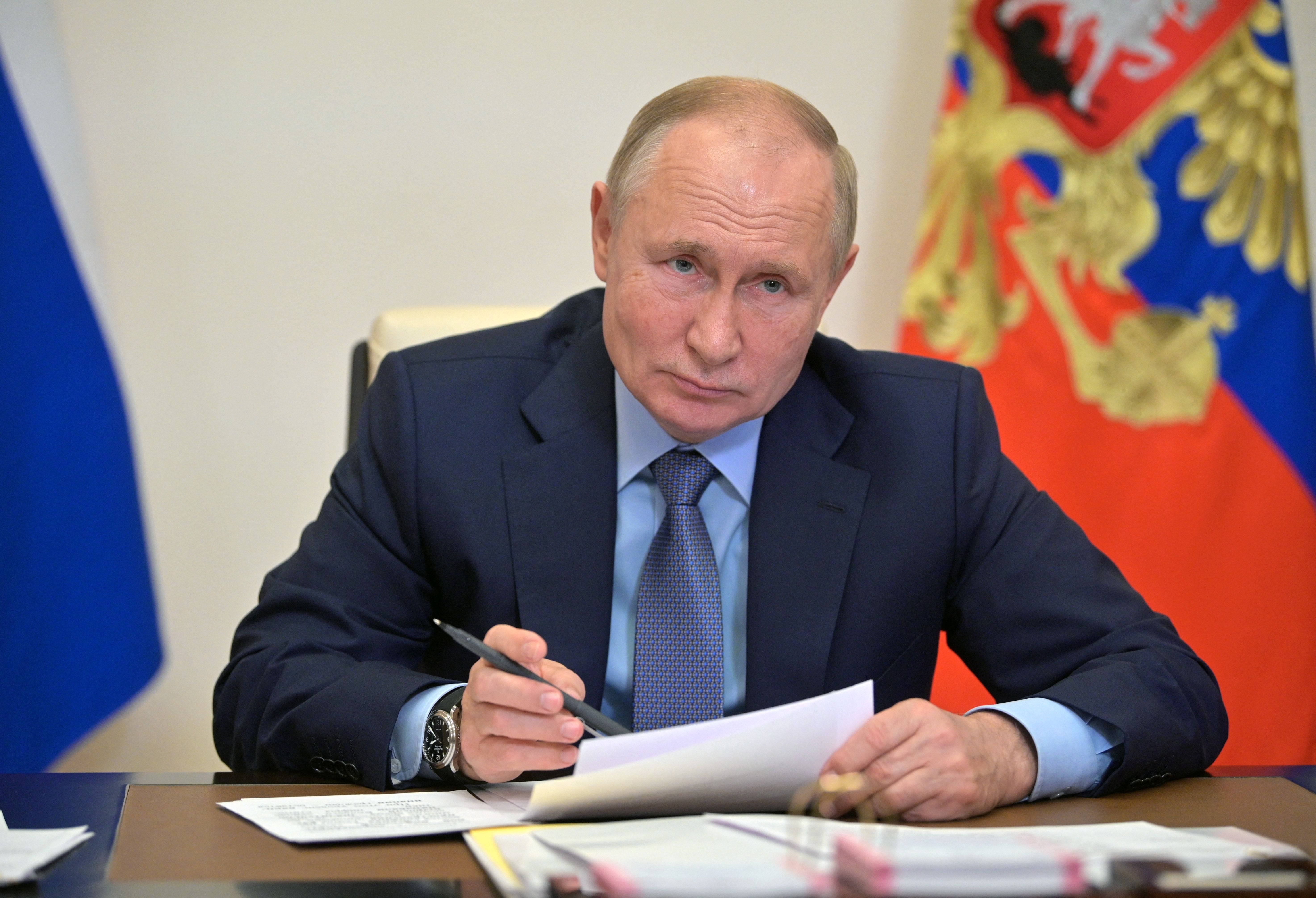
Two days after Russia launched its invasion of Ukraine, the Kremlin’s state-controlled news agency RIA Novosti published, then quickly removed, what appeared to be a pre-written essay that hailed Moscow’s military victory over its neighbour.
“A new world is being born before our eyes,” said the flowery article, which was spotted by Kremlin watchers, translated, and distributed as an example of the propaganda and underlying mentality of Vladimir Putin’s inner circle.
“Russia’s military operation in Ukraine has ushered in a new era,” it read.
With an exuberant tone that contrasted starkly with the grim reality for both Russian troops and Ukrainian civilians on the ground, the article insisted that Mr Putin’s war had restored “unity” between Russians, Ukrainians and Belarusians.
It also said the conflict had corrected “the tragedy of 1991”, apparently a reference to the 1 December 1991 referendum in which 92.3 per cent of Ukrainians voted to leave the Kremlin-dominated Soviet Union.
“There will be no more Ukraine as anti-Russia,” the article said. “Russia is restoring its historical fullness, collecting the Russian world, the Russian people together – in its entirety of Great Russians, Belarusians and Little Russians.”
The piece is among the best summations of what Mr Putin hoped to achieve with his offensive against the democratically elected government of Ukraine. In the process, it blithely erases Ukrainian history and agency, as well as ignoring international conventions and treaties.
But analysts say it is one of several crucial texts and speeches that provide insight into the thinking of Mr Putin and his increasingly insular and isolated inner circle, helping to ascertain his vision for Russia and its neighbours, and perhaps his war planning – not just for Ukraine, but for the rest of Eurasia.
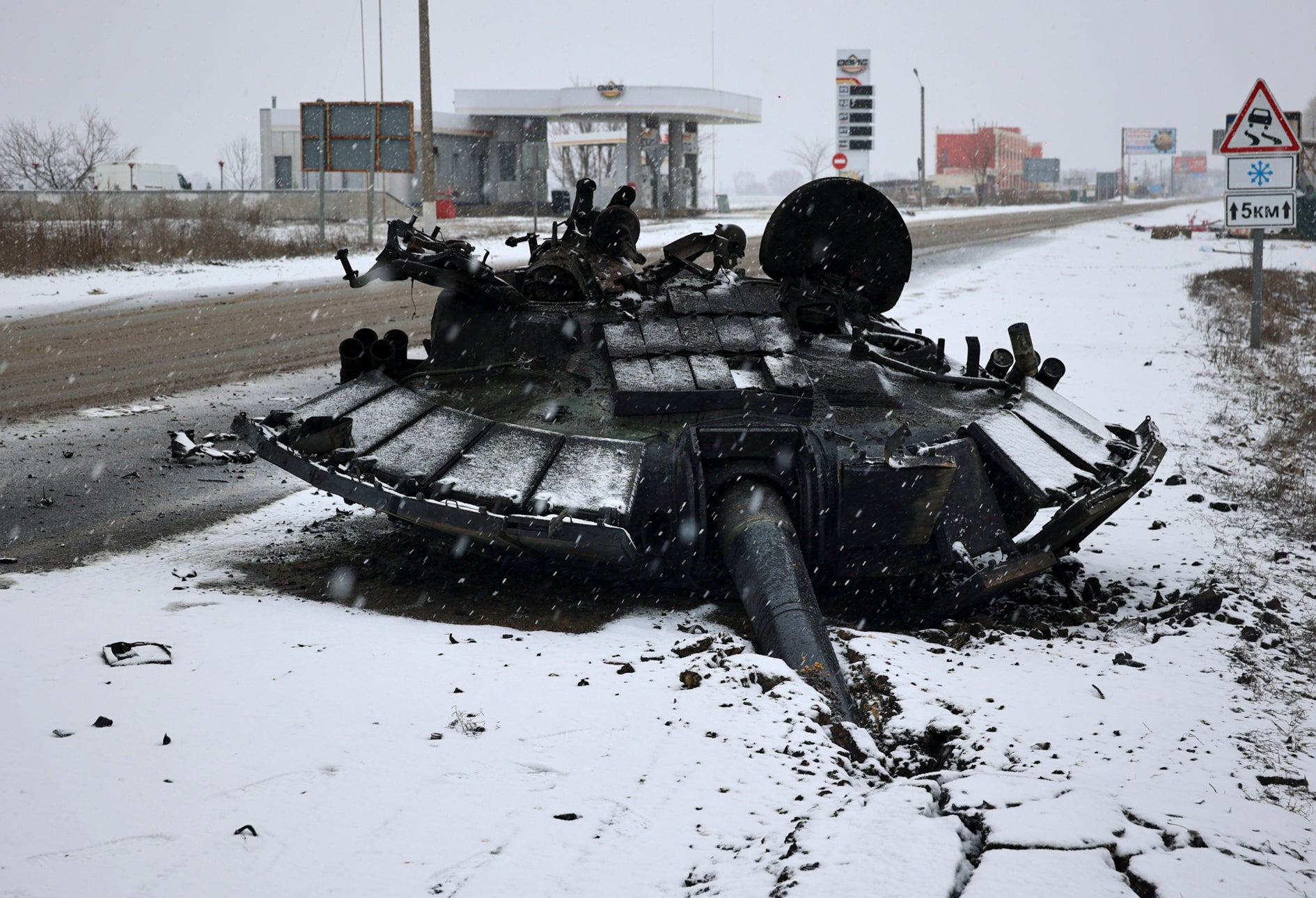
“His vision is an imperialist vision,” says Maria Malksoo, a researcher specialising in Russia at the Centre for Military Studies in Copenhagen.
“In a way, Russian ontological boundaries and ontological security have never been able to manage as a nation state. It has always been an empire pining for a lost empire,” she tells The Independent.
Ahead of a third round of peace talks on Monday, Russia pressed Ukraine to accept tough terms that would require Kyiv to demilitarise, enshrine neutrality in its constitution, and recognise breakaway pro-Kremlin regions of the east as well as the Russian annexation of Crimea.
These humiliating conditions would be likely to spell the end of the government of Ukrainian president Volodymyr Zelensky, and would give Russia an opportunity to turn the country into a vassal state, as it has essentially done with neighbouring Belarus.
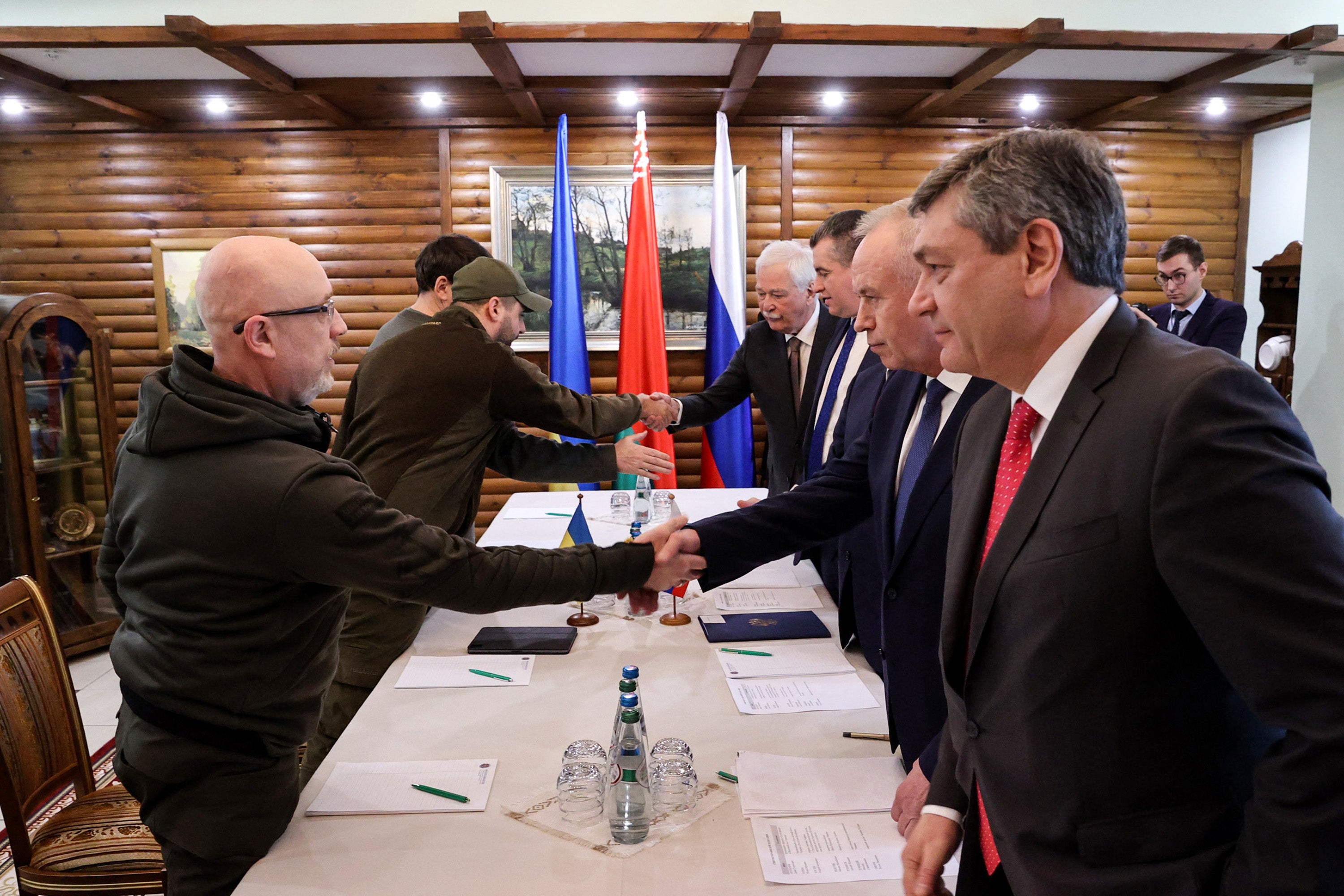
Last year, Mr Putin penned a 5,000-word essay in which he threatened Ukraine with dissolution. In particular, the piece’s emphasis on Kremlin political control over the Russian-speaking world carried chilling echoes of Nazi Germany’s annexation of German-speaking Austria, along with parts of France, the former Czechoslovakia, and Poland.
Much of the world ignored that essay. Even Mr Zelensky joked that his Russian counterpart must have too much free time. In a media environment saturated with outrageous tweets and memes aimed to shock, many shrugged off Mr Putin’s equivalent of Mein Kampf as just another attempt at trolling.
But in light of the invasion of Ukraine, diplomats and scholars are beginning to take the words and actions of the Kremlin and its supporters seriously, and at face value.
They are no longer content to regard Mr Putin as a manageable and cynical kleptocrat who seeks to use nationalism only to ensure the survival of his regime. They now see him as something of an ideologue, a true believer in the propaganda spouted by his media outlets.
They want the whole of Ukraine, with a military occupation and their own leadership. They want to transform Ukraine into a second Belarus
“One fact is crystal clear,” Mr Putin wrote last year about the borders drawn to create modern-day Ukraine. “Russia was robbed, indeed.”
A reassessment of the last 14 years suggests that Mr Putin has been willing to punctuate his words of grievance with hard military power.
A pattern can be discerned of Russia aggressively lungeing for Russian-speaking lands that do not bow to the Kremlin.
It began in Georgia, a former Soviet republic and the birthplace of former leader Joseph Stalin, when in 2008, Moscow dispatched its own army and fighter jets, along with allied forces, to seize control of two enclaves bordering Russia. This continued in 2014, when Kremlin allies seized and annexed the Crimean peninsula, which was part of Ukraine.
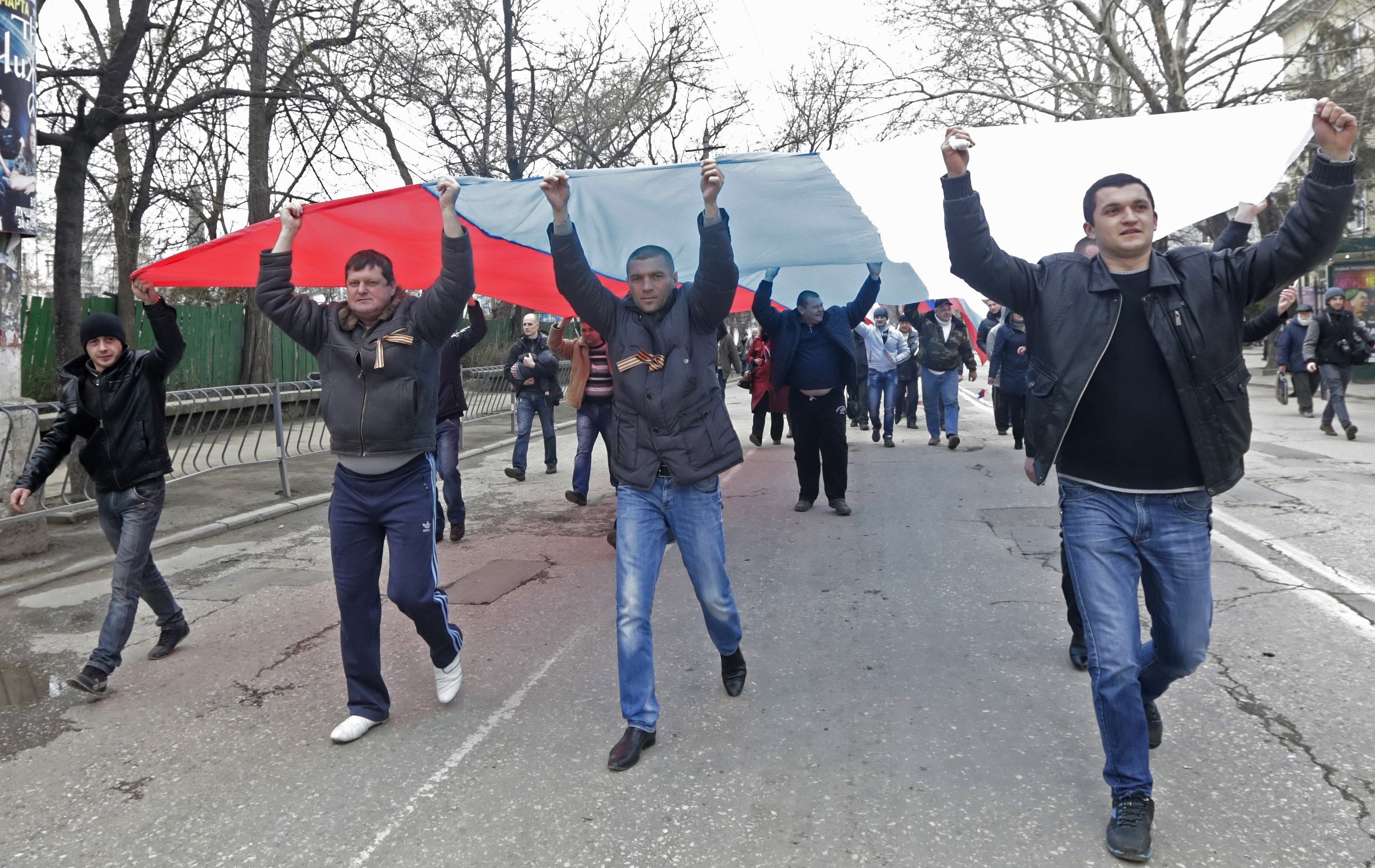
It includes the exploitation of political unrest in Belarus in 2020, and in Kazakhstan, which has the largest Russian-speaking population of the former Soviet central Asian states, in 2021. In both instances, Mr Putin pulled autocratic leaders facing democratic challengers closer into the Kremlin’s orbit.
Just last month, a referendum rammed through by the strongman leader of Belarus, Alexander Lukashenko, approved a new constitution giving up the country’s non-nuclear status. This paves the way for Mr Putin to station nuclear weapons in Belarus, which borders three Nato members as well as Ukraine.
On the ground in Ukraine, military experts say Russia’s manoeuvres from the beginning belied any notion that Mr Putin sought only to defend or expand the two pro-Kremlin enclaves in the east.
“It looked like the main sweep of the invasion would encompass the whole territory of Ukraine,” says retired Romanian army general Virgil Balaceanu, a former officer who has worked with both Russian and Nato forces.
“They don’t want to only occupy the eastern part of Ukraine. They want the whole of Ukraine, with a military occupation and their own leadership. They want to transform Ukraine into a second Belarus.”
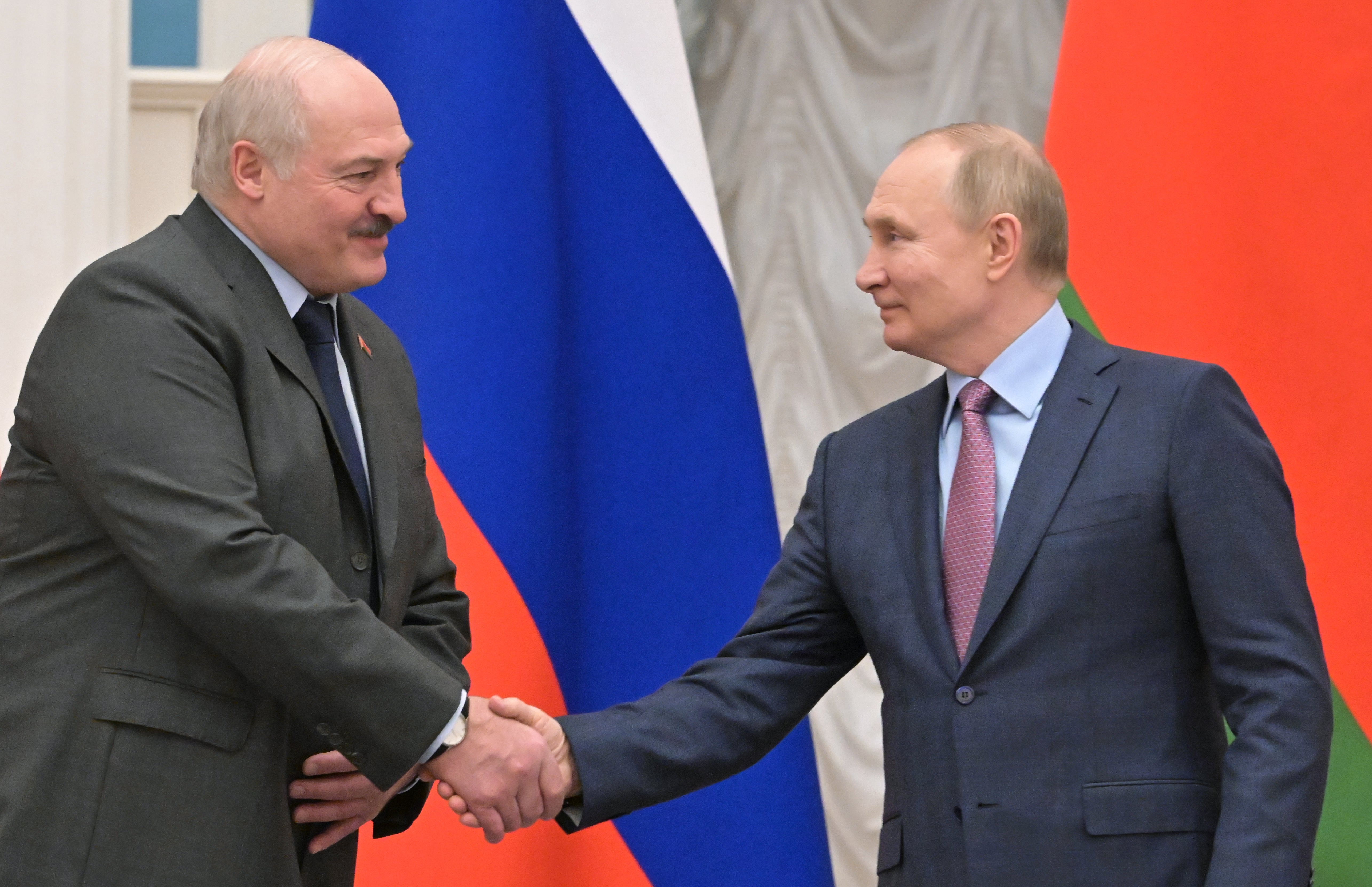
Mr Putin’s 2021 essay, titled “On the Historical Unity of Russians and Ukrainians”, was filled with ominous hints about his plans.
Although Mr Putin gave a nod to “Ukrainian language and traditions”, he also appeared to lump the country’s population in with other ethnic groups who once made their home in the southwest of the Russian empire, which collapsed in 1917 as communists took over the country and created the Soviet Union.
“I am confident that true sovereignty of Ukraine is possible only in partnership with Russia,” he wrote.
He clearly doesn’t see Ukrainians as a separate nation and separate people
He cited a number of what he described as “giveaways” by the Soviet Union to Ukraine. They included Crimea and Bessarabia, along the borders with Romania and Moldova, as well as Snake Island, which was seized last month by Russian soldiers after they were told to “go f**k” themselves by Ukrainian forces attempting to defend it.
“Our spiritual, human and civilisational ties formed for centuries, and have their origins in the same sources. They have been hardened by common trials, achievements and victories,” Mr Putin wrote in reference to Ukraine and Russia.
“Our kinship has been transmitted from generation to generation. It is in the hearts and the memory of people living in modern Russia and Ukraine, in the blood ties that unite millions of our families,” he continued.
Russia watchers say Mr Putin’s vision for Ukraine is rooted in a kind of Russian identity politics, a mythical understanding of Russian-speaking people as belonging to one realm.
“He clearly doesn’t see Ukrainians as a separate nation and separate people,” says Hanna Notte, a Russia expert at the Vienna Centre for Disarmament and Non-Proliferation.
It is not clear how or when the Russian leader’s views on Ukraine crystallised, but Ms Notte describes a televised 2014 question-and-answer session following Russia’s conquest of Crimea, in which he made comments that suggest the idea was already germinating then.

“He talked about the Russian people as having a specific genetic code, a different patriotism than others, and able to undergo hardships like no other people,” she says. “It gives you an idea of how much pain he thinks Russia can withstand.”
Based on Mr Putin’s words, Ms Notte says she doubts that he seeks to restore direct Russian control over non-Russian speaking eastern European nations that were once under Soviet domination – such as Poland, Romania, Bulgaria, Georgia and Hungary, as well as the Baltics and central Asian countries such as Kazakhstan.
But Mr Putin clearly sees nations with large Russian-speaking populations as targets for other kinds of domination, including the sort of political manipulation Russia already exercises in the Balkans and Caucasus regions.
“You don’t need to occupy countries in order to have a degree of influence,” Ms Notte adds. “He clearly sees Russia as a great power. Great powers have an entitlement to a sphere of influence. They have an entitlement to wage wars against countries.”
Mr Putin also seems to see himself as playing a historic role in elevating Russian power, as “The One” who will restore the glory of the realm.
One would hope this is a case of strategic overreach
“Vladimir Putin has assumed, without a drop of exaggeration, a historic responsibility by deciding not to leave the solution of the Ukrainian question to future generations,” the RIA Novosti article read. “Now this problem is gone – Ukraine has returned to Russia.”
Mr Putin’s view of the west is particularly bleak and angry. That essay speaks of an emerging “new world order” that will demolish “Anglo-Saxon globalisation”.
The invasion of Ukraine “is not capable of rallying anyone but the west against Russia”, said the essay, suggesting that the Kremlin had little idea that only four nations would support its cause at the UN General Assembly.
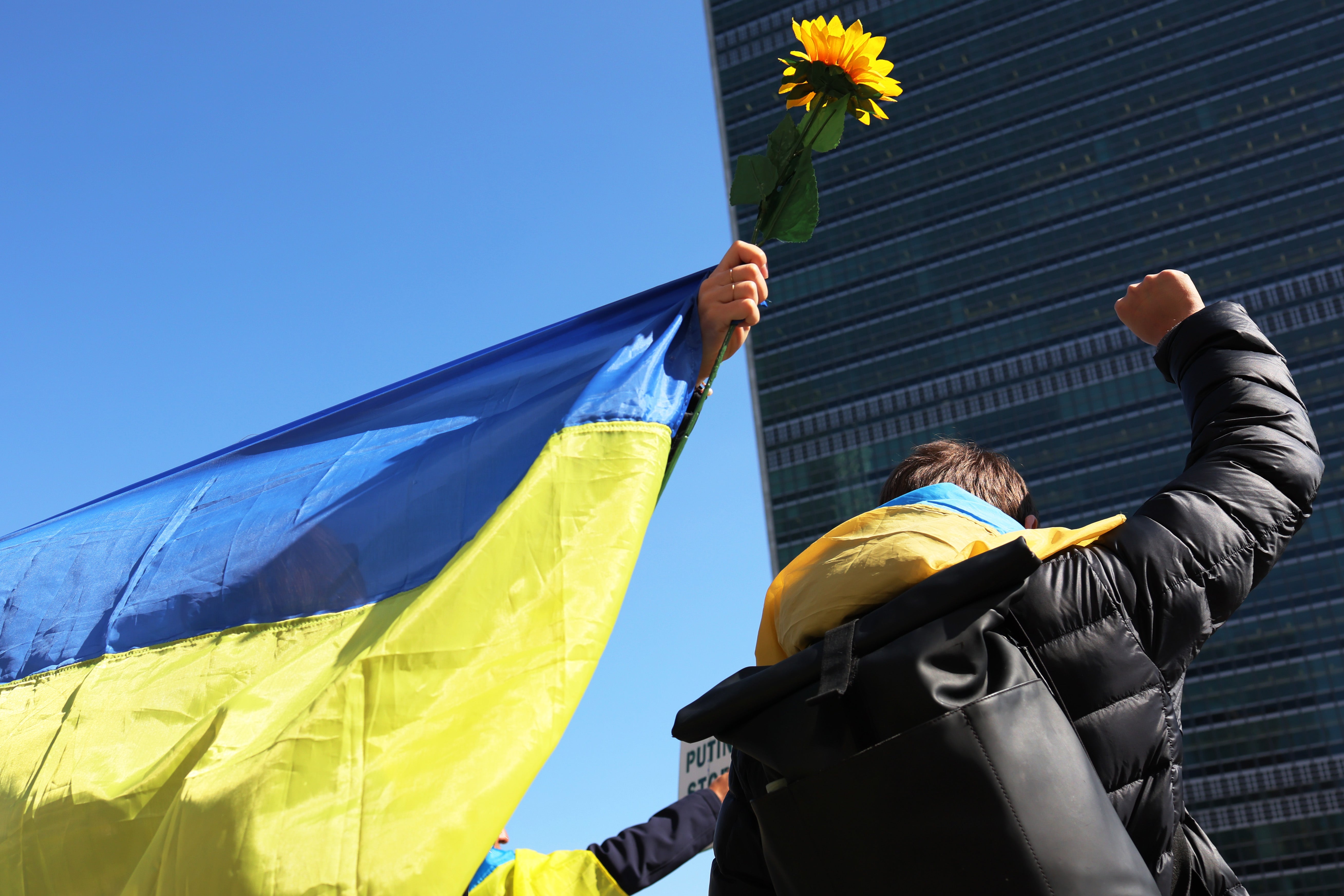
“Russia has not only challenged the west; it has shown that the era of western global domination can be considered completely and finally over.”
However, the fantasy outlined in the RIA Novosti article has already run into potentially insurmountable obstacles. Sooner or later, Mr Putin’s grandiose vision for his country will run into even more cold hard facts.
Russia’s GDP barely matches that of Canada, though it has three times its population. Its invasion of Ukraine has badly damaged the country’s image abroad, hurting its prospects for investment and international ties of the kind that attract respect and admiration for nations such as Germany, Japan, France and Sweden.
“The things they desire as the insignia of great-power status are not a part of what is considered a good, responsible great power,” says Ms Malksoo. “And one would hope this is a case of strategic overreach.”
Join our commenting forum
Join thought-provoking conversations, follow other Independent readers and see their replies
Comments

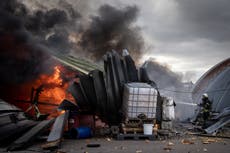
Bookmark popover
Removed from bookmarks